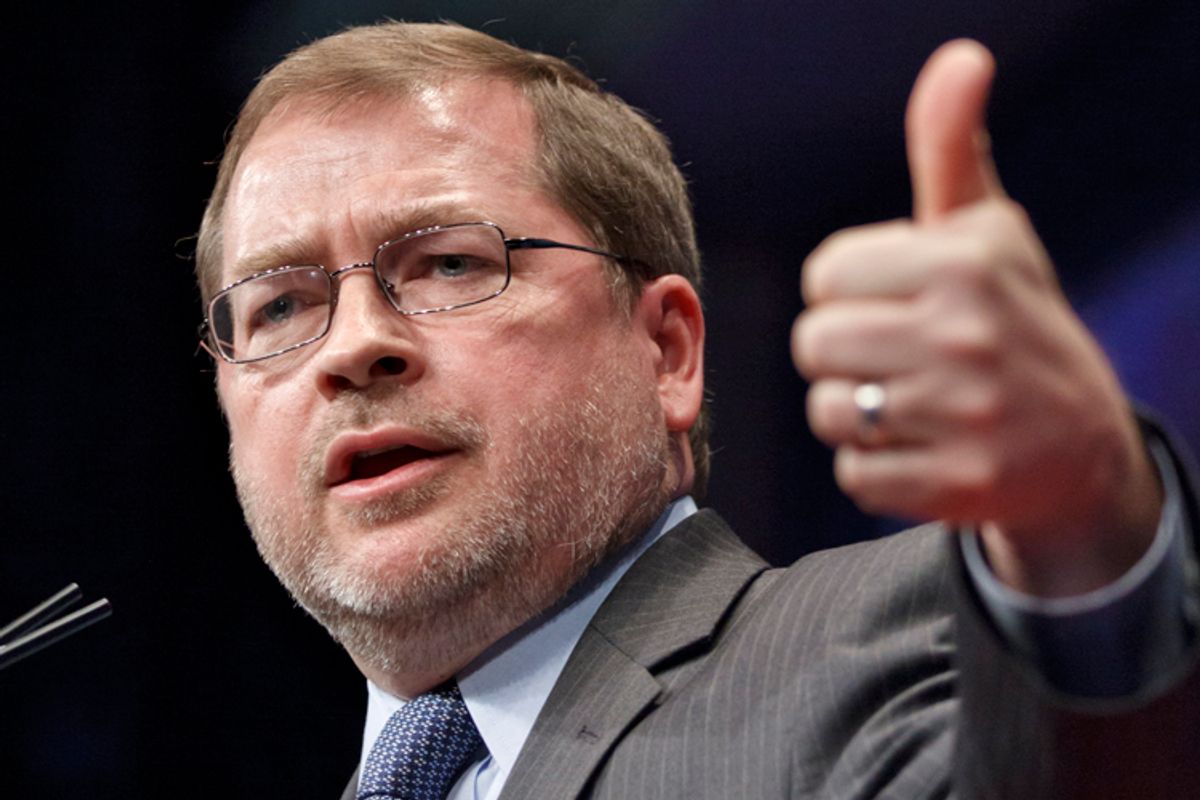There isn't enough support among Republicans in Congress for shutting down the government over Obamacare, and I think there are probably enough Republicans on the Hill who want to put brinkmanship behind them that they'll vote to keep the government open -- if only by extending current funding levels -- without extracting any real concessions.
But there is a way that pent-up Republican rage could explode into a real shutdown fight next month. And as revealing as the right's defund-Obamacare-or-shut-down-the-government demands are about movement politics and the 2016 presidential field, that's actually not the issue to watch for indications that Republicans are reverting to 2011 levels of procedural extremism.
This York News Times editorial by Sen. Mike Johanns, R-Neb., tells the story, as does Senate Minority Leader Mitch McConnell's final filibuster before the August recess.
Nowhere does Johanns imply that Republicans should hold the line even if it risks a shutdown. In fact the column's title -- "Why a New 'Sequester' Is on the Horizon" -- effectively acknowledges that Republicans will cave. But he explains the point of contention, which is that Republicans want to claim victory in the fight over sequestration, and make its dangerously low levels of federal spending permanent.
The Democrat-controlled Senate Appropriations Committee, which holds the power to tighten the purse strings and govern federal outlays, is spending $91 billion above and beyond legal limits agreed to by both parties in Congress and the President in the Budget Control Act (BCA) [aka the 2011 debt limit deal]. This irresponsible behavior sends us careening toward a new round of sequester cuts and fails to fulfill our obligation to responsibly allocate taxpayer dollars, opting instead to keep spending beyond our means.
These aren’t just arbitrary caps. They are the law that all but two of the 16 Democrats on the powerful committee voted for in 2011. Under the law, if the government spends more than the allotted limits set forth in the BCA, automatic government-wide spending cuts would be triggered, blindly trimming nearly every government account by the same margin without regard for the services effected. Yet, these committee members in the majority party are ignoring the law they supported, willfully blowing the budget caps….
Despite this “agreement,” the Senate’s Democrat majority has decided to forego the only responsible way to “turn off the sequester,” which would require tough choices and prioritizing needed spending cuts. Instead, they decided not to seize this opportunity to correct government spending, putting us on a path for another round of the very cuts the President spent much of this year railing against.
This is a clever way to frame the argument, but it disowns the basic terms of the 2011 debt limit deal. Back then, Republicans and Democrats agreed up front to $1 trillion in spending cuts over 10 years. They also agreed they'd reduce the deficit by an additional $1.2 trillion, ideally in a different package of legislation authored by the famed but failed "Super Committee." Sequestration was an enforcement mechanism that both guaranteed the $1.2 trillion goal would be met, while motivating members of Congress to find a bipartisan alternative. Its cuts are so indiscriminate and harmful that they'd compel members of both parties to sacrifice their fiscal sacred cows in a mutually agreeable way.
The incentive hasn't worked yet, and sequestration has been in effect for nearly six months. But there are signs that it will eventually force a crucial mass of Democrats and Republicans to return to normal budgeting.
Republicans like Johanns want to eliminate the incentive altogether, but not by replacing it with a mutually agreeable alternative. Instead they want to pocket its cuts and reapportion them in a more targeted way across the federal government. Specifically, if Johanns' House counterparts are any indication, they want to reapportion the cuts exclusively to domestic spending programs and replenish spending on the Defense Department and other security programs. Which is simply to say they want Democrats to cave in the budget fight.
But that's not how the deal was designed. Democrats understand that, which is why they propose funding the government at pre-sequestration levels, and then letting the automatic cuts take effect once again. That's why Johanns warns a "new 'Sequester'" is on the horizon. But that's also keeping faith with the debt limit deal.
As I mentioned, I think enough Republicans will ultimately back the Democratic approach that a shutdown will be avoided. Wall Street Journal editorial board member Stephen Moore argues Republicans should be satisfied for now with the budget status quo, which, he writes, "call[s] into question the wisdom of a government-shutdown confrontation over the budget this fall or a debt-default showdown that runs the risk of suspending the spending caps and sequester and revitalizing an increasingly irrelevant president."
If Moore gets his way, sequestration's noose will tighten around defense spending, and the odds that Congress will find a bipartisan alternative will once again increase. You might not like what they come up with (in fact, you probably won't) but that was the deal the parties' leaders agreed to.
Still, there are at least some signs that permanently locking in sequestration-level spending is the battle Republicans will pick.



Shares